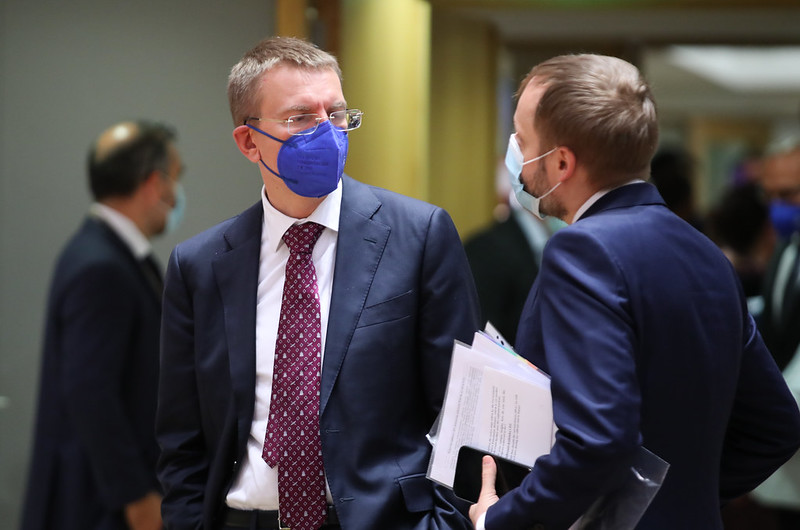"In view of the large-scale digital transformation initiated by the EU in recent years, it is expected that this year and in a foreseeable future the EU will continue work towards the advancement of digital sovereignty. At the same time, the external dimension of the digital sector, in which the EU, including Latvia, is facing a number of challenges, is to occupy an increasingly important place in the process of implementing digital transformation," said an account of the meeting by the Ministry of Foreign Affairs.
According to the Ministry the main challenges are strengthening of the EU’s digital sovereignty; the efforts of countries pursuing “digital authoritarianism” to shape international structures and norms in line with their values and interests; authoritarian countries strengthening their capabilities and influence in the digital sector, and increasing threats to the opportunities for human beings to realize their fundamental rights and freedoms in the digital environment, "where the formation of human rights protection mechanisms is lagging behind technological change."
"It is important for Latvia that EU digital sovereignty be strengthened, thereby reducing dependence on third countries in the digital sector while seeking common points of reference in cooperation with allies or like-minded countries and being aware of different approaches on certain matters," the statement said, without quoting the minister directly at any point.
On a global scale, the EU should seek opportunities to offer its digital policy standards and solutions to developing countries, said the Latvian Foreign Minister, adding that democratic countries should jointly protect their values and lay down norms of digital governance based on respect for international law and human rights that facilitate sustainable development and prevent threats to global peace and security.
"Latvia supports a common EU level legislative framework on digital platforms in the fight against unlawful and harmful content, including disinformation, while underlining that freedom of speech must be preserved as one of the most important values in democracy," the statement said.























